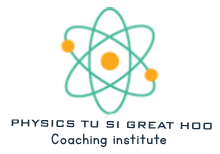JEE Exam Overview
JEE (Joint Entrance Examination) is a national-level engineering entrance examination conducted in India for admission to various undergraduate engineering and architecture courses. It is conducted in two stages: JEE Main and JEE Advanced.
JEE Main
Syllabus
Class 11:
- Physics and Measurement
- Kinematics
- Laws of Motion
- Work, Energy, and Power
- Rotational Motion
- Gravitation
- Properties of Solids and Liquids
- Thermodynamics
- Kinetic Theory of Gases
- Oscillations and Waves
Class 12:
- Electrostatics
- Current Electricity
- Magnetic Effects of Current and Magnetism
- Electromagnetic Induction and Alternating Currents
- Electromagnetic Waves
- Optics
- Dual Nature of Matter and Radiation
- Atoms and Nuclei
- Electronic Devices
- Communication Systems
Class 11:
- Sets, Relations, and Functions
- Complex Numbers and Quadratic Equations
- Matrices and Determinants
- Permutations and Combinations
- Mathematical Induction
- Binomial Theorem
- Sequences and Series
- Limit, Continuity, and Differentiability
- Integral Calculus
- Differential Equations
- Coordinate Geometry
- Three-Dimensional Geometry
- Vector Algebra
- Statistics and Probability
- Trigonometry
- Mathematical Reasoning
Class 12:
- Matrices
- Determinants
- Mathematical Induction
- Complex Numbers
- Quadratic Equations
- Binomial Theorem
- Sequences and Series
- Differential Calculus
- Integral Calculus
- Differential Equations
- Coordinate Geometry
- Three-Dimensional Geometry
- Vector Algebra
- Probability
- Trigonometry
- Mathematical Reasoning
Class 11:
- Some Basic Concepts in Chemistry
- States of Matter
- Atomic Structure
- Chemical Bonding and Molecular Structure
- Chemical Thermodynamics
- Solutions
- Equilibrium
- Redox Reactions and Electrochemistry
- Chemical Kinetics
- Surface Chemistry
- Classification of Elements and Periodicity in Properties
- General Principles and Processes of Isolation of Metals
- Hydrogen
- s-Block Element
- p-Block Elements (Group 13 to Group 18)
- d- and f-Block Elements
- Coordination Compounds
- Environmental Chemistry
- Basic Principles of Organic Chemistry
- Hydrocarbons
Class 12:
- Solid State
- Solutions
- Electrochemistry
- Chemical Kinetics
- Surface Chemistry
- Isolation of Elements
- p-Block Elements
- d- and f-Block Elements
- Coordination Compounds
- Haloalkanes and Haloarenes
- Alcohols, Phenols, and Ethers
- Aldehydes, Ketones, and Carboxylic Acids
- Organic Compounds Containing Nitrogen
- Biomolecules
- Polymers
- Chemistry in Everyday Life
Exam Pattern
Mode of Examination: Online (Computer Based Test)
Duration: 3 hours
Total Marks: 300
Number of Questions: 90 (30 from each subject: Physics, Chemistry, Mathematics)
Type of Questions: Multiple Choice Questions (MCQs) and Numerical Value Questions
Marking Scheme:
+4 for each correct answer (MCQs)
-1 for each incorrect answer (MCQs)
No negative marking for numerical value questions
Courses for JEE Main
JEE Main is required for admission to:
– B.E./B.Tech (Bachelor of Engineering/Bachelor of Technology)
– B.Arch (Bachelor of Architecture)
– B.Planning (Bachelor of Planning)
– Admission to NITs (National Institutes of Technology), IIITs (Indian Institutes of Information Technology), and other Centrally Funded Technical Institutions (CFTIs).
JEE Advanced
Syllabus
- General Physics
- Mechanics
- Thermal Physics
- Electricity and Magnetism
- Optics
- Modern Physics
- Algebra
- Trigonometry
- Analytical Geometry
- Differential Calculus
- Integral Calculus
- Vectors
- Physical Chemistry
- Inorganic Chemistry
- Organic Chemistry
Exam Pattern
Mode of Examination: Online (Computer Based Test)
Duration: 3 hours per paper (Paper 1 and Paper 2)
Total Marks: Varies each year
Number of Questions: Varies each year
Type of Questions:Multiple Choice Questions (MCQs), Numerical Value Questions, and Match the Following
Marking Scheme:
Varies; usually includes partial marking, negative marking, and integer-type questions with no negative marking
Courses for JEE Advanced
JEE Advanced is required for admission to:
– B.Tech (Bachelor of Technology)
– B.S. (Bachelor of Science)
– Dual Degree (B.Tech + M.Tech, B.S. + M.S.)
– Integrated M.Tech, M.Sc
– Admission to IITs (Indian Institutes of Technology)
Exam Toughness Level
Recommended Preparation Strategy
Strong Foundation
Practice
Conceptual Clarity
Time Management
Regular Revision
Why JEE (Joint Entrance Examination)?
Engineering Career Opportunities :
Future Requirement
Job Prospects
Financial Stability
Entrepreneurship and Innovation:
Future Requirement
Career Growth
Financial Rewards
Why We Here?
we are dedicated to providing comprehensive support and guidance to help you excel in your academic and competitive pursuits. Our goal is to equip you with the knowledge, skills, and confidence needed to succeed in various competitive exams. Whether you’re preparing for NEET, JEE, JEE Advanced, GUJCET, CUET, International Maths Olympiads, International Science Olympiads, or your Board Exams, we are here to support you every step of the way.
Create your free account now and immediately get access to 100s of online courses.
Why Choose Us?
One-to-One Mentorship
Practical Lab Integration
24/7 Support
Kota-Level Planning
Testimonials
chavda Suhani(fc)
katariya prince(jn)
Dave purva(jn)
Aarzop wadhvaniya(fc)
Kshitij punani(fc)
Saniya chamdiya(jn)
patel diya(jn)
panjvani prince(jn)
priyank Solanki(fc)
deversh vasani(jn)
The Application Process
Start Online Submission
Submit The Form
Review The Submission
Gather Necessary Documents
Interviewing Process
Last Decision
Things To Know First
At vero eos et accusamus et iusto odio dignissimos ducimus qui blanditiis praesentium voluptatum deleniti atque corrupti.
You will need :
- Sed ut perspiciatis unde omnis iste natus error sit voluptatem accusantium
- Sed ut perspiciatis unde omnis iste natus error sit voluptatem accusantium
- Sed ut perspiciatis unde omnis iste natus error sit voluptatem accusantium
When To Apply?

When To Apply?
Documents not submitted through the online method can be mailed to:
- Box 35300
- 1810 Campus Way NE
- Bothell, WA 98011-8246 USA




